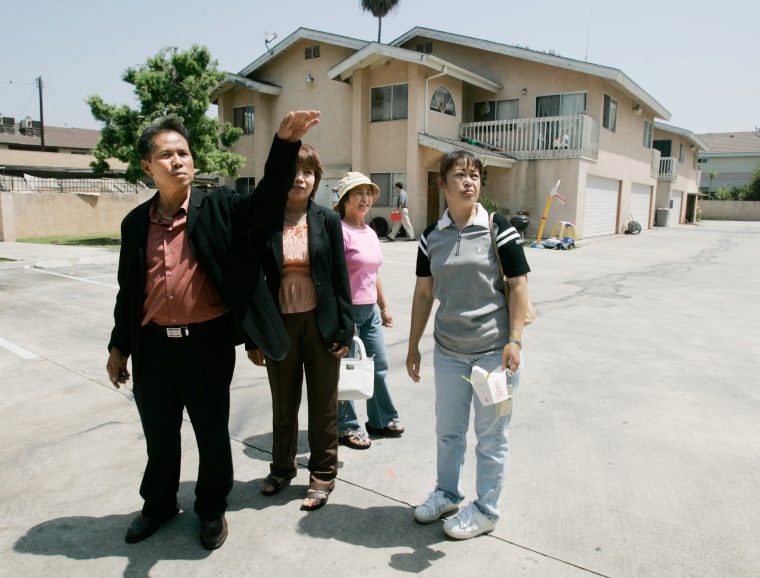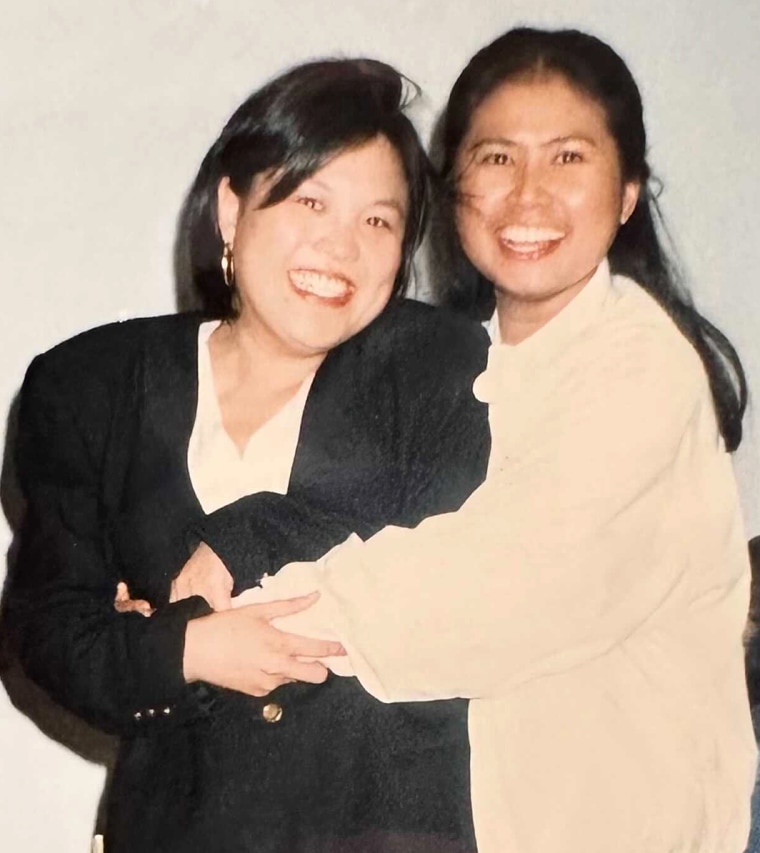Maliwan Clinton, 54 years old, said that the memory of her confinement in a sweatshop compound near El Monte, California three decades ago, is hard to forget. She still remembers her sewing machine, which she used from sunrise until late at night. The barbed wire that was encircling and surrounding the building had sharp edges. Armed guards were also present to prevent workers from leaving.
“We don’t know nothing about the outside,” she told NBC News.
Clinton is one of 81 Thai garment workers who were inducted into the Department of Labor’s Hall of Honor in Washington, D.C., this week for helping to expose their former employer’s abusive practices in 1995. This case was the first to be recognized as modern slavery since slavery’s constitutional abolition. It led to the creation of landmark protections for workers with low income.
“I can’t even tell you how I feel,” Clinton said, laughing. ”I can’t believe I was over there in Washington, D.C., in history. … I’m so proud of ourselves and thank you to every single one of the people who helped us.”
Acting Labor Secretary Julie Su, who started her legal career nearly 30 years ago as the lead attorney for these garment workers, gave an emotional speech during the induction ceremony detailing her own connection to their story, as well as the workers’ greater significance to labor rights.

“Me and my friend, we thought we could come here and help our families. Our families were poor.”
Maliwan radomphon, clinton on her decision to take a job in the U.S.
“The most profound changes are personal. Like our honorees, standing up, building power, exercising their rights, and against all odds defying the message they have heard their entire lives: that they should just keep their heads down and know their place,” Su said during the ceremony on Monday.
Clinton and another former sweatshop employee, Nantha Jaknang, also spoke onstage about their experiences in the compound in the early ‘90s. Tammy Duckworth of Illinois, as well as other Asian American politicians, made remarks.
Clinton told NBC News that the moment was unimaginable — a sharp contrast to the devastating situation she found herself in for two difficult years of her life. Clinton worked as a garment worker in Thailand and explained how, in her early twenties, she received an offer to move to the U.S. with no visa or travel costs.
“Me and my friend, we thought we could come here and help our families. Our families were poor,” Clinton remembers. “And we were told that the contract only lasts for three years. We would probably have money left for our families, and that made us want to come.”

Clinton explained that upon arriving, it was immediately obvious that nothing had gone as promised. Clinton said the workers had been confined in a seven unit compound located in El Monte (a city within Los Angeles County), where some of them were kept for seven years. Grocery shopping, still paid for by the employees at a markup, was done by sweatshop operators so that the workers wouldn’t leave the premises, Clinton said. While the workers were allowed to take one day of vacation a month they still had to stay in the building. She said that work days began at 6 am and ended late into the night, giving them around 4 or 5 hours to rest.
“We had nothing to lose … We all stuck together and fought for our freedom. And yes, we did it.”
Maliwan Radomphon, Clinton on his fight for liberty after the sweatshop’s exposure
“I was depressed … I was already in there and there was nothing I could do,” Clinton said. “All we could do is suck it up, and when the time came, we would go home. That’s all me and my friend would talk about.”
Clinton stated that the operators of sweatshops were able easily to exploit the workers because they were not able interact with outsiders. As there was no communication with other workers, it was impossible to determine if they received a similar wage.
Clinton explained that since workers in the past had tried to climb the fence to escape the harsh conditions of the sweatshop, they installed razor-wire around the complex. A guard, who was usually armed machetes, prevented any escape. A Justice Department press statement stated that workers were frequently threatened with violence, as well as their families.
In August 1995, after receiving a tip by the boyfriend of a fugitive worker, the authorities stormed the compound and discovered the horrendous conditions. Clinton said that initially, the prospect of exposing the sweatshops was frightening. She said that during their sweatshop experience, workers were told repeatedly by the police they would be punished if ever they left. This kept the mood gloomy.
Clinton explained that the workers were initially taken in custody and deported, but their fates changed when the Thai Community Development Center began advocating for them. Su then offered to represent the group. To support their case, the workers gathered old clothes and labels they made. Some of the workers testified at court.
“We had nothing to lose,” Clinton said. “We all stuck together and fought for our freedom. And yes, we did it.”
“Look at us. From zero, we started from scratch. Nothing. We knew nothing. If we could do it, they can do it too.”
Maliwan Radomphon, clinton on current labour strikes
They sued the companies which contracted with the sweatshop and who paid more than $3.7million to 150 El Monte Workers. And while companies previously argued that subcontractors alone were liable for violations of workers’ rights, the efforts in the case led to the passage of California legislation that placed an onus on manufacturers and retailers for garment workers’ wages when contractors failed to properly compensate them.
Many of the workers eventually became citizens. A part of the story of these workers led Congress to pass the Victims of Trafficking and Violence Protection Act. The act created visas for victims of crime, such as forced labor and human trafficking, and who help law enforcement.
Ten Thai citizens were ultimately indicted on charges of involuntary service, kidnapping and other crimes.
Clinton hopes that others, inspired by her experience, will continue to fight for their rights.
“Look at us. From zero, we started from scratch. Nothing. And look at us now,” she said. “If we could do it, they can do it too.”
Clinton stated that many workers who regained their freedom have pursued their own interests. Some of Clinton’s friends started businesses; others opened restaurants and dabbled in the real estate market. Clinton currently works at Target, where she’s been for 20 years.
“To me, looking back when we were in the compound, it’s now totally different,” Clinton said. “Everybody’s doing so good. We have a good life.”